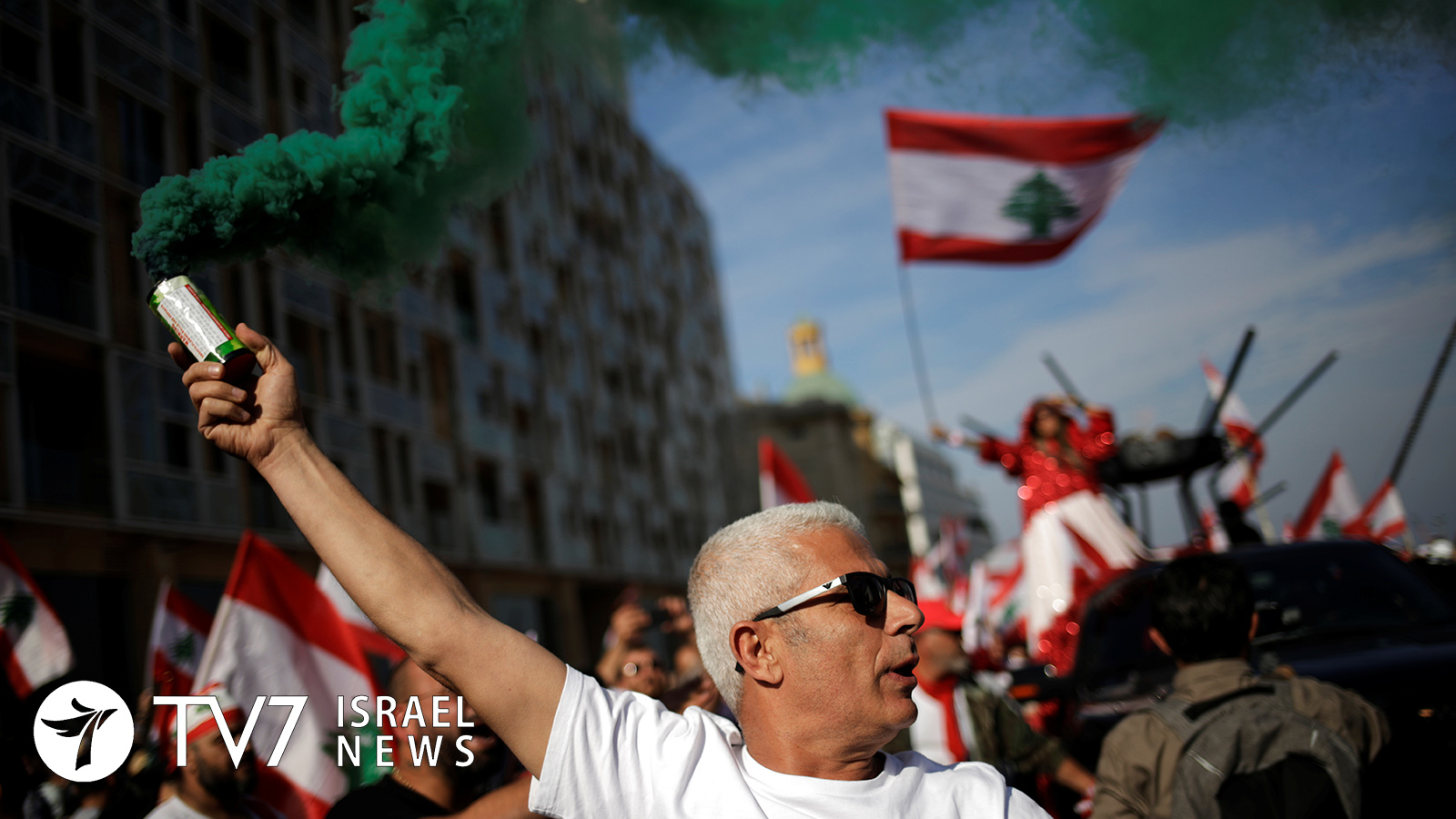The escalation of Lebanon’s political crisis into three consecutive nights of violence are prompting rising concerns of bloodshed and a return to civil war that plagued the Middle East country from 1975 to 1990.
Anti-government demonstrations that have largely been peaceful since the outbreak of nationwide mass unrest mid-October appear to be taking on deeper sectarian overtones. In a particularly ominous incident, the army was deployed on Tuesday (November 26) to quell a clash In the Beirut district of Ain el-Remmaneh between rival Christian and Shi’ites from the neighboring Muslim district of Chiyah, reportedly sparked by the circulation on social media of a three-year old video in which men believed to be supporters of the Christian Lebanese Forces were seen insulting Hezbollah leader Sayyed Hassan Nasrallah.
The area was a front line of the civil war, which began as a conflict between Lebanese Christian groups on the one hand and Palestinian, Lebanese leftist and Sunni Muslim groups on the other, and fractured Lebanon into sectarian enclaves.
The state NNA news agency reported that on Monday, gunfire was exchanged in both Beirut and Tyre between the heavily-armed Hezbollah and its Shi’ite ally Amal with supporters of Lebanon’s caretaker prime minister, Saad al-Hariri; who was prompted to resign by the mass unrest on October 29. The two groups were influential in the coalition government led by Hariri and opposed his resignation. The two Shi’ite groups have occasionally sought to break up the demonstrations and clear roads cut off by protesters. There was also tension between the two sides in the Cola bridge area in Beirut on Monday, with local media broadcasting video of gunfire.
Video obtained by Reuters and local news website Yasour.org showed people on motorcycles carrying the flags of Amal and Hezbollah circling a protest camp in Tyre before tearing up the tents and setting them on fire, compelling intervention by security forces who fired into the air. They previously destroyed a main protest camp in central Beirut last month.
Hariri’s Future Movement issued a statement warning its followers to refrain from demonstrations and to avoid large gatherings to “avoid being dragged into any provocation intended to ignite strife.”
Ali, the owner of a cafe on a road between Chiyah and Ain el-Remmeneh, told Reuters that the situation had been “unbelievably tense.” “The situation in the country is not okay and things like this should not be allowed to happen, because our country cannot bear it,” he said, stressing, “As a Shi’ite, I cannot accept that the Shi’ite side does this to the Christian side, and I cannot accept the Christian side does this to the Shi’ite side.”
Protests since October 17 have pulled Lebanon deeper into economic crisis, worsening a hard currency crunch that has hit importers and raised fears of price hikes and shortages. Today gas stations began a nationwide open-ended strike, due to what their union said were “losses incurred from being forced to purchase dollars on a parallel market, the primary source of hard currency in economic hard times.”
The stations collect payments from customers in Lebanese pounds, although they have to purchase fuel from private importers in dollars. The cost of dollars on the parallel market has surged since the start of demonstrations to around 40% more than the official 1507.5 rate set in 1997.
There are also increased pressures in the financial system, deepening a hard currency crunch that has left many importers unable to bring in goods; resulting in rising prices and heightened fears of financial collapse. Confidence has been shaken in a banking system that has been a cornerstone of Lebanon’s post-war stability.
Controls imposed by the banking sector on access to cash are fuelling concern among depositors, worried for their savings despite government assurances they are safe from the worst financial crisis since the civil war.
Factory owner Khaled Abla in Marjayoun said “It may come to a point where I tell my workers go home, I close my factory, and I would use the $500 I withdraw every week to eat and drink. You have children, you know.”
The banks’ imposition of restricted withdrawal limits for hard currency and blocks on nearly all transfers abroad has plunged many savers into deep uncertainty. Failure by the country’s fractious sectarian leadership to name a successor to Hariri has in turn delayed reforms to offset a growing economic crisis, causing customers to worry their over access to their savings.
The head of banking association, in a Reuters interview last week, described the controls as “a fence to protect the system” until the situation returns to normal. The central bank has said deposits are safe. But concern is widespread. The dollar withdrawal curbs have been steadily tightened since they were first applied at the start of November. Blom Bank, one of Lebanon’s largest, has gradually lowered its weekly withdrawal ceiling from $2,500 to $500 this week for depositors with less than $100,000 in their accounts. At Bank Audi, the limit is $300. Some depositors said they would pull their remaining savings if only they could and regret not having done so already.
The protests have been fuelled by rage against a ruling class seen as looting Lebanon, and significantly impacted an already weak economy. Many businesses have eliminated jobs, lowered salaries or reassigned employees to part time work.
Those seeking dollars must rely on an increasingly expensive parallel market, where the Lebanese pound’s value was around 40 percent weaker than its official rate on Tuesday.
Moreover, Lebanon has one of the world’s highest public debt levels, and its foreign currency reserves are set to come under further pressure this week – when repayment of a $1.5 billion Eurobond is due.
